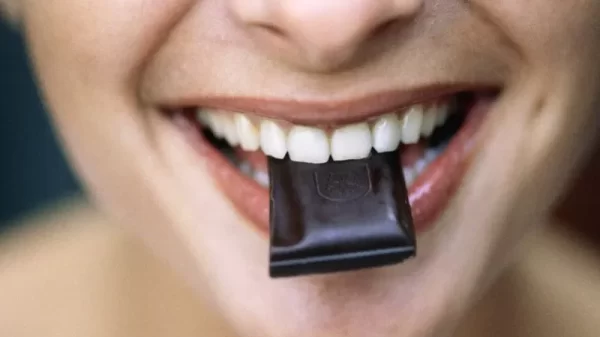The myths about coffee and red wine that you think are true
We are often bombarded with information about foods and substances that are supposed to have ‘protective’ effects on health and have ‘nutritional properties’.
But the dietary advice and opinions we hear about many foods change all the time.
The two foods most studied for their effects on human health are coffee and red wine.
And we are given conflicting opinions about them. Sometimes they are said to have ‘harmful’ effects on our body and sometimes they are said to be beneficial.
What do the latest scientific studies say about them? We spoke to two scientists who have been researching the effects of coffee and red wine on human health.
Coffee and mortality
That a morning cup of coffee as part of our daily routine is extending our lives.
A study published in July in The Annals of Internal Medicine says so. About two lakh people have been researched for 10 years.
The researchers found that people who drank between one and a half to three and a half cups of coffee a day, even with a teaspoon of sugar added, were less likely to die than non-coffee drinkers over the decade of their study. The chances were seen as low as 30 percent.
Those who drank unsweetened coffee had a 16 to 21 percent lower risk of death. And those who had the lowest risk of death during the study were those who drank up to three cups of coffee a day.
This is not the first study to report a reduced risk of death in coffee drinkers. In 2018, another study that collected data on more than 500,000 people for 10 years also found a 16 percent reduction in the risk of premature or premature death.
And in several studies, this reduction was also seen in decaf coffee drinkers, which could also mean that some of the thousands of compounds in coffee are beneficial.
However, many people continue to think that coffee is harmful and that we should limit our use of this substance. Are we wrong about coffee?
Dr Esther López García, professor of preventive medicine and public health at the Autonomous University of Madrid, told the BBC: “For some time, our perspective on the health effects of coffee has changed radically.”
A large-scale study began in 2003 that looked at regular coffee consumption over the years and looked at how it affected the risk of premature death, heart disease or type 2 diabetes, Lopez says. Is.
After properly adjusting for factors influencing health, such as tobacco and alcohol use, no harmful effects of regular coffee consumption were observed. It has even been found to help prevent type 2 diabetes and stroke.
“It was also observed that the harmful effects of caffeine do not persist in regular users, and they develop a tolerance to the substance and the beneficial effects of other coffee components on their health,” Lopez says. are more influential.’
Several studies on coffee have shown evidence that it has potential protective effects against Parkinson’s disease. It is also said to protect against cognitive deterioration, cardiovascular disease, cancer, type 2 diabetes and some forms of diabetes in general.
But Professor López García stresses that ‘the strongest evidence is for type 2 diabetes. For other diseases, it is not yet clear.
It is believed that it is not harmful for heart disease and it is also not harmful for breast cancer. And caffeine is thought to reduce the risk of neurodegenerative diseases, but the results are still unclear.
There are more than a thousand chemical compounds in coffee, and many of them are being extensively investigated.
For example, it contains a large amount of antioxidants, which other research suggests may prevent or delay cell damage.
Professor Garcia explains that the beneficial effects of coffee are mainly due to one of these antioxidants, chlorogenic acid.
According to them, this antioxidant has many beneficial effects on glucose metabolism. It also contains other substances, such as magnesium, which is a mineral that has many beneficial effects on health.
Perhaps coffee has had a ‘bad reputation’ in the past because caffeine can cause anxiety or insomnia in some people.
That’s why Prof. Garcia says that in healthy people, a typical daily intake of 3 to 5 cups of coffee “may be beneficial.”
‘Unsweetened coffee is now recommended as a health drink in many food guides.’
But it added that “all people with health problems that could be worsened by coffee should seek individual advice about the use of the drink.”
Wine and its ‘Protective Effects’
Red wine is often presented as the ‘healthy face’ of alcohol.
Several studies over the past few decades have convinced us that the ‘occasional’ glass of wine is good for cardiovascular health.
For example, a study published in 2019 in the journal Molecules suggests that the wide variety of polyphenol compounds in red wine may reduce the risk of heart disease.
But in January this year, the World Heart Federation (WHF) published a research review showing that alcohol is definitely not good for cardiovascular health.
The WHF report states that cardiovascular disease (CVD) has almost doubled in recent decades and alcohol has played a major role in many of these cases.
According to the WHF, ‘for more than 30 years the myth has been promoted that alcohol prolongs life primarily by reducing the risk of coronary heart disease.
But the report says that alcohol consumption increases the risk of CVD and other diseases.
So is red wine good or bad? We asked this question to Dr. Miguel Marcos Martín, researcher at the Salamanca Biomedical Research Institute and professor at the University of Salamanca. He has participated in several studies on the effects of alcohol on health.
“It is true that there are studies that link alcohol consumption to potential health benefits with controversial and inconclusive results, but we cannot forget that many other studies clearly show that it is a substance with many harmful effects, even in small doses.’
According to him, ‘For all these reasons, no amount of alcohol or such beverages can be recommended for health reasons at this time.’
Dr Marcus Martin confirms that the message that red wine has ‘protective effects’ for the heart is clearly not based on scientific evidence as this has not been conclusively proven.
On the other hand, even if it is true that wine has a protective effect against certain diseases, we cannot ignore the harmful effects it can cause. Alcoholic beverages lead to dependence, and cause liver disease and pancreatitis, etc.’








